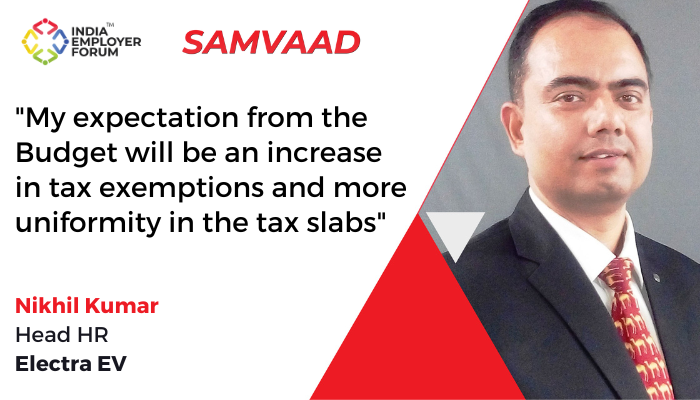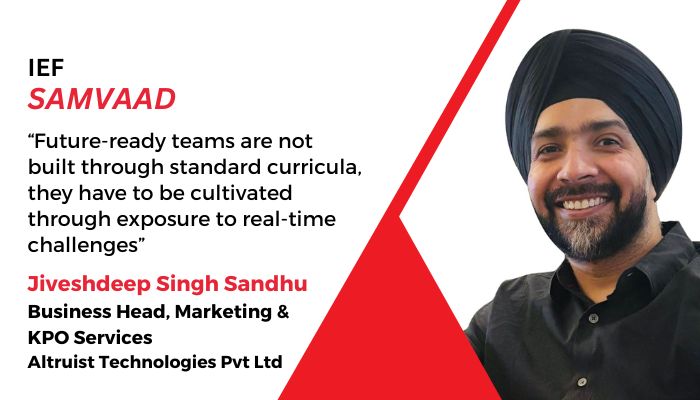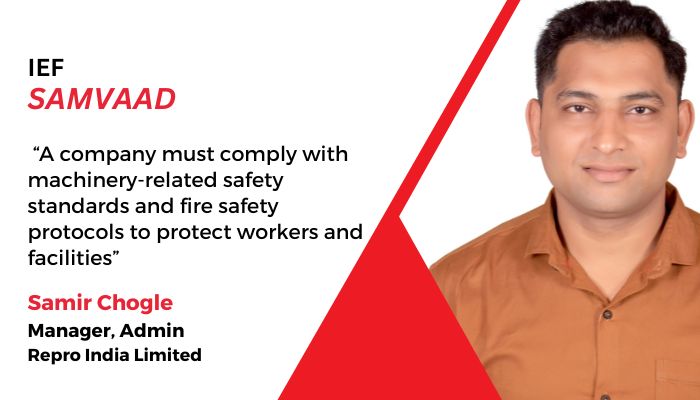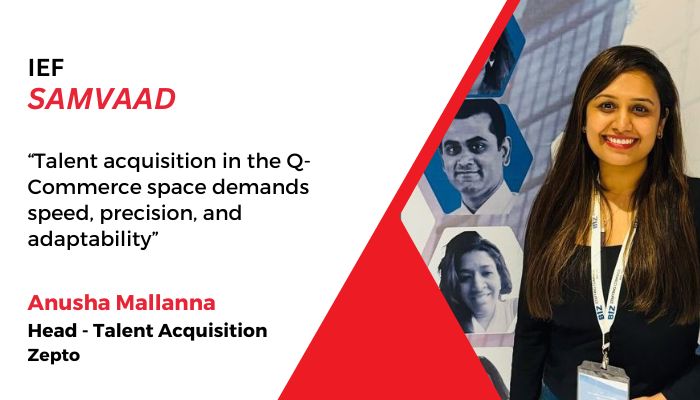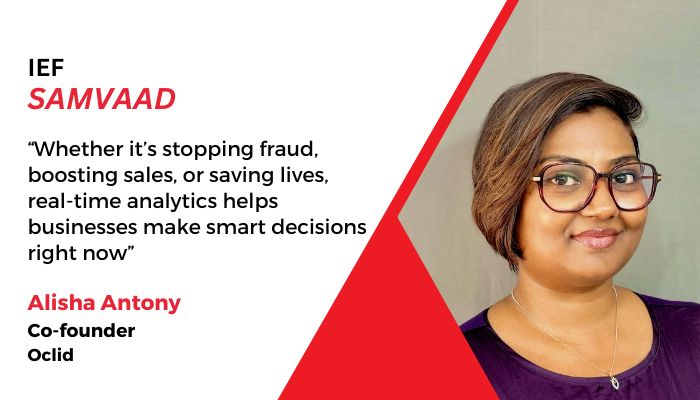Nikhil Kumar, Head HR, Electra EV, speaks to India Employer Forum about the future role of HR Tech, overcoming hiring challenges in the EV industry, changing the mindset of job seekers, budget expectations and many more.
Q. What are your views on the current and future role of HR Tech in the HR function? In what ways can HR Tech be utilised to provide a competitive advantage to Employers?
What was HR tech 15 years ago? HR was at an infant stage. Some companies were actually deploying HR technology to solve employee issues and administering better-unemployed benefits, trying to address their queries, onboarding, etc. But the majority of the companies were still in manual mode. Now, a shift in the last 10 years, a lot of focus has gone into HR technology, talking about success factors, for onboarding or training or recruitment, everything is going to or talking about any of the SAP, ESS software, managing the workforce. What has happened in the last 2 years is that the human touch which was almost there has gone out. You’re touching employees remotely. Now, there’s a new level of requirement for HR Technologies. Why? Because today, the major problem the industry is facing is attrition, employee disengagement, moonlighting, not connecting business, loyalty is missing, etc.
Q. Is it more difficult to get talent for EV-related roles given that it is such a new space in India? If it is difficult, what do you do to overcome this hurdle?
The first company to start EV was Erstwhile e2o. Mahindra acquired that company. It was in the nascent stage. In 2017-18, when the startup upswing happened, it was difficult. What started in 2020 was the big push with the subsidy from the Indian government to promote EVs. We have all signed the Paris Declaration to have carbon net zero. If you have a high level of emission of carbon, it means there are a lot of taxes or a lot of penalties that are going to come from the developed countries. So we have to overcome that. Because we are going to be a niche player in the segment. Let’s take India for example. There were international players who came to India to develop this thing. Still, there is a demand gap. How do you address the gap? The only way was to hire skilled people with a vision and good attitude, someone who’s got a good learning capability and then enable them to the newer technologies, what we call digital enablement. This is what my company is doing and other companies are doing.
Q. With an uncertain global environment, a recession looming and elevated inflation, do you think there has been a change in a jobseekers mindset?
As a job seeker, what was my perspective as a job seeker? Anyone who was giving me a hike, I would go for it. Today, job seekers are relying a lot on data on social media, trying to understand if the company is or is not employee friendly, if they’re retaining or firing people, what is the level of projects today, etc. They also want to see what the future goal this company has got. These days, employees want to do a lot of reference checks, or what we call market intelligence, to understand if the data the employer is talking about is true or not. Most importantly, people want to know if they can work remotely, closer to their hometown and families. If I am from Bihar, why should I work from Bangalore? I would save on accommodation costs. I will be happy sitting in Patna and addressing the customer from here.
Q. What are your 5 biggest expectations from the budget this year?
Today, if you see any employee in an organisation, what they are all worried about or stressed about is the high level of taxation with our Indian government. The way the taxation structure is. On one side you’re increasing service by 30-40%, salaries are high. So, the moment you cross a 10 lakh threshold, you get in the next tax slab. People are looking for some uniformity and more exemption in the tax bracket. Second, people are looking for a perquisite tax. Today if you look at rule no. 3 (2A) of Income Tax Act, which talks about perquisite tax on a house or car. People are looking for more tax breaks on that. Third, the government of India should encourage major players to move from highly congested cities to move towards tier 3 cities. This is going to help in 3 ways. This will not only be beneficial in terms of tax but will also give better infrastructure. It will also create room for a lot of new people and skilled resources who are not able to go to the big cities like Mumbai, Pune, Bangalore or Delhi, they will be able to work sitting in Patna.
Watch the full interview: In conversation with Nikhil Kumar, Head HR, Electra EV
About Nikhil Kumar
Nikhil Kumar is MBA-HR and also a PhD Scholar having 25 years of Global experience across a diverse set of industries such as IT, Consulting, Automobile, Engineering, and Service; proficient in streamlining, defining & executing HR strategy consistent with business strategy & challenges and delivering sustained organisational growth in the dynamic, highly competitive environment.

